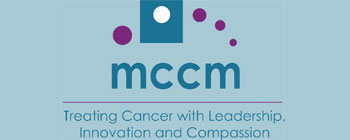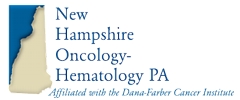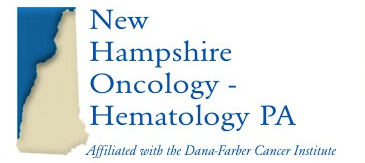Cisplatin, Irinotecan, and Radiation Therapy in Treating Patients With Esophageal Cancer or Gastroesophageal Junction Cancer That Can Be Removed By Surgery
| Status: | Completed |
|---|---|
| Conditions: | Cancer, Cancer, Gastrointestinal |
| Therapuetic Areas: | Gastroenterology, Oncology |
| Healthy: | No |
| Age Range: | 18 - Any |
| Updated: | 5/10/2018 |
| Start Date: | February 2006 |
| End Date: | October 15, 2014 |
A Phase II Trial of Preoperative Irinotecan, Cisplatin and Radiation in Esophageal Cancer
This phase II trial studies how well giving cisplatin and irinotecan hydrochloride together
with radiation therapy works in treating patients with esophageal cancer or gastroesophageal
junction cancer that can be removed by surgery. Drugs used in chemotherapy, such as cisplatin
and irinotecan hydrochloride, work in different ways to stop the growth of tumor cells,
either by killing the cells or by stopping them from dividing. Radiation therapy uses
high-energy x-rays to kill tumor cells. Giving combination chemotherapy together with
radiation therapy before surgery may make the tumor smaller and reduce the amount of normal
tissue that needs to be removed.
with radiation therapy works in treating patients with esophageal cancer or gastroesophageal
junction cancer that can be removed by surgery. Drugs used in chemotherapy, such as cisplatin
and irinotecan hydrochloride, work in different ways to stop the growth of tumor cells,
either by killing the cells or by stopping them from dividing. Radiation therapy uses
high-energy x-rays to kill tumor cells. Giving combination chemotherapy together with
radiation therapy before surgery may make the tumor smaller and reduce the amount of normal
tissue that needs to be removed.
PRIMARY OBJECTIVES:
I. To determine the pathologic complete response rate in patients with surgically resectable
esophageal cancer treated pre-operatively with induction chemotherapy with weekly cisplatin
and irinotecan (irinotecan hydrochloride) followed by concurrent cisplatin/irinotecan and
radiation therapy.
SECONDARY OBJECTIVES:
I. To evaluate potential response or progression of disease during induction chemotherapy
with positron emission tomography (PET) scan.
II. To evaluate the toxicity and tolerability of therapy, including surgical morbidity and
mortality.
III. To determine the overall survival, disease free survival, and pattern of failure.
OUTLINE:
INDUCTION CHEMOTHERAPY (COURSES 1-2): Patients receive cisplatin intravenously (IV) over 30
minutes and irinotecan hydrochloride IV over 30-90 minutes on days 1 and 8 of courses 1 and
2. Treatment repeats every 21 days for 2 courses in the absence of disease progression or
unacceptable toxicity.
CHEMORADIOTHERAPY (COURSES 3-4): Beginning 2 weeks after completion of induction
chemotherapy, patients receive cisplatin and irinotecan hydrochloride as in induction
chemotherapy on days 1 and 8 of courses 3 and 4 and undergo radiotherapy daily 5 days a week
in course 3. Treatment repeats every 21 days for 2 courses in the absence of disease
progression or unacceptable toxicity.
SURGERY: Approximately 4-8 weeks after completion of chemoradiotherapy, patients undergo
surgery to remove the tumor.
After completion of study treatment, patients are followed up every 3 months for 2 years and
then every 6 months for 3 years.
I. To determine the pathologic complete response rate in patients with surgically resectable
esophageal cancer treated pre-operatively with induction chemotherapy with weekly cisplatin
and irinotecan (irinotecan hydrochloride) followed by concurrent cisplatin/irinotecan and
radiation therapy.
SECONDARY OBJECTIVES:
I. To evaluate potential response or progression of disease during induction chemotherapy
with positron emission tomography (PET) scan.
II. To evaluate the toxicity and tolerability of therapy, including surgical morbidity and
mortality.
III. To determine the overall survival, disease free survival, and pattern of failure.
OUTLINE:
INDUCTION CHEMOTHERAPY (COURSES 1-2): Patients receive cisplatin intravenously (IV) over 30
minutes and irinotecan hydrochloride IV over 30-90 minutes on days 1 and 8 of courses 1 and
2. Treatment repeats every 21 days for 2 courses in the absence of disease progression or
unacceptable toxicity.
CHEMORADIOTHERAPY (COURSES 3-4): Beginning 2 weeks after completion of induction
chemotherapy, patients receive cisplatin and irinotecan hydrochloride as in induction
chemotherapy on days 1 and 8 of courses 3 and 4 and undergo radiotherapy daily 5 days a week
in course 3. Treatment repeats every 21 days for 2 courses in the absence of disease
progression or unacceptable toxicity.
SURGERY: Approximately 4-8 weeks after completion of chemoradiotherapy, patients undergo
surgery to remove the tumor.
After completion of study treatment, patients are followed up every 3 months for 2 years and
then every 6 months for 3 years.
- Histologically or cytologically confirmed adenocarcinoma, poorly differentiated
carcinoma, or carcinoma not otherwise specified, of the esophagus or gastroesophageal
junction; biopsy or cytology of the primary tumor, or of involved regional lymph
nodes, is acceptable
- Tumors must be TNM stage T2-4, N0-1, M0 as determined by pretreatment endoscopic
ultrasound; T1 tumors are eligible if they are T1, N1, M0; regional thoracic lymph
node involvement (N1) is permitted
- Disease must be clinically limited to the esophagus or gastroesophageal junction; if
the tumor extends below the gastroesophageal junction into the proximal stomach, 50%
of the tumor must involve the distal esophagus or gastroesophageal junction;
adenocarcinomas of the distal esophagus would therefore include tumors of the distal
esophagus, or Siewert type I according to the Siewert classification, and tumors of
the gastroesophageal junction which involve equally both the distal esophagus and
proximal stomach, or Siewert type II; tumor must be surgically resectable
- No TIS (in-situ carcinoma) and tumors determined to be T1N0 following endoscopic
ultrasound
- No clinical involvement on endoscopic ultrasound (EUS), computed tomography (CT)
scan, or PET scan of supraclavicular or celiac lymph node involvement (stage IVa,
T any N any M1a) unless this is proven to be a false positive by an appropriate
biopsy
- No patients with cervical esophageal tumors, or gastric cancers with minor
involvement of the gastroesophageal junction or distal esophagus
- No patients with tracheoesophageal fistulas
- Patients with evidence of metastatic disease are not eligible; this includes:
- Positive malignant cytology of the pleura, pericardium or peritoneum
- Radiographic evidence of distance organ involvement including lung, liver, bone,
or brain
- No prior chemotherapy or radiotherapy is permitted; patients must be at least 4 weeks
since major surgery, or must have recovered from the effects of minor surgery
(laparoscopy, thoracoscopy)
- No prior malignancies (other than basal cell/squamous carcinoma of the skin, in-situ
cervical carcinoma, or superficial transitional cell bladder carcinoma) are permitted
unless diagnosed and/or treated >= 3 years before registration and without evidence of
recurrence
- Eastern Cooperative Oncology Group (ECOG) performance status 0-1
- No evidence of recurrent laryngeal nerve or phrenic nerve paralysis
- No known Gilbert's disease
- No clinically significant hearing loss; audiograms should be done in patients in which
they are clinically indicated
- No history of active seizure disorder; no ongoing treatment with phenytoin,
phenobarbital, or other antiepileptic medication; patients who are receiving valproic
acid are eligible
- No New York Heart Association class III or IV heart disease; no angina or myocardial
infarction within the last 6 months
Inclusion Criteria:
- No history of clinically significant ventricular arrhythmia requiring ongoing
medication with antiarrhythmics
- Absolute neutrophil count (ANC) >= 1,500/ul
- Platelet count >= 100,000/ul
- Hemoglobin >= 9 gm/dl
- Serum creatinine =< upper limit of normal (ULN)
- Total serum bilirubin =< 1.5 mg/dl
- Forced expiratory volume in 1 second (FEV-1) >= 1.2 liters OR >= 35% of normal as a
value that is indexed to body size
- Pulmonary function tests (PFT) >= 1.2 liters OR >= 35% of normal as a value that is
indexed to body size
We found this trial at
24
sites
Click here to add this to my saved trials
417 State St #30
Bangor, Maine 04401
Bangor, Maine 04401
(207) 973-7478

CancerCare of Maine at Eastern Maine Medical Center Our compassionate, experienced physicians specialize in the...
Click here to add this to my saved trials
Roswell Park Cancer Institute Welcome to Roswell Park Cancer Institute (RPCI), America's first cancer center...
Click here to add this to my saved trials
200 Hawkins Drive
Iowa City, Iowa 52242
Iowa City, Iowa 52242
800-237-1225

Holden Comprehensive Cancer Center at University of Iowa Holden Comprehensive Cancer Center is dedicated to...
Click here to add this to my saved trials
100 Campus Dr # 108
Scarborough, Maine 04074
Scarborough, Maine 04074
(207) 396-7600

Maine Center for Cancer Medicine and Blood Disorders - Scarborough Maine Center for Cancer Medicine...
Click here to add this to my saved trials
SUNY Upstate Medical University Hospital SUNY Upstate Medical University in Syracuse, NY, is the only...
Click here to add this to my saved trials
Mountainview Medical Our medical oncologists, hematologist, and oncology advanced practice nurse, along with other dedicated...
Click here to add this to my saved trials
Click here to add this to my saved trials
Click here to add this to my saved trials
Columbus, Ohio 43210
Click here to add this to my saved trials
250 Pleasant Street
Concord, New Hampshire 03301
Concord, New Hampshire 03301
603-224-2556

New Hampshire Oncology - Hematology, PA at Payson Center for Cancer Care Our Concord office...
Click here to add this to my saved trials
Elkhart General Hospital For over 100 years, the highly skilled professionals of Elkhart General Hospital...
Click here to add this to my saved trials
Click here to add this to my saved trials
200 Technology Drive
Hooksett, New Hampshire 03106
Hooksett, New Hampshire 03106
603-622-6484

New Hampshire Oncology - Hematology, PA - Hooksett New Hampshire Oncology-Hematology, PA (NHOH) was founded...
Click here to add this to my saved trials
Click here to add this to my saved trials
1007 LINCOLNWAY
La Porte, Indiana 46350
La Porte, Indiana 46350
219.326.1234

Center for Cancer Therapy at LaPorte Hospital and Health Services United in our mission, the...
Click here to add this to my saved trials
Click here to add this to my saved trials
Click here to add this to my saved trials
Saint Joseph Regional Medical Center Saint Joseph Regional Medical Center is a not-for-profit, multi-hospital health...
Click here to add this to my saved trials
Memorial Sloan Kettering Cancer Center Memorial Sloan Kettering Cancer Center — the world's oldest and...
Click here to add this to my saved trials
Methodist Estabrook Cancer Center At Methodist Estabrook Cancer Center, we understand how deeply a diagnosis...
Click here to add this to my saved trials
Memorial Hospital of South Bend Memorial Hospital of South Bend is a community-owned, not-for-profit corporation...
Click here to add this to my saved trials
Michiana Hematology Oncology In 1968, medical oncologist Thomas Troeger, MD had a dream to advance...
Click here to add this to my saved trials
Click here to add this to my saved trials








